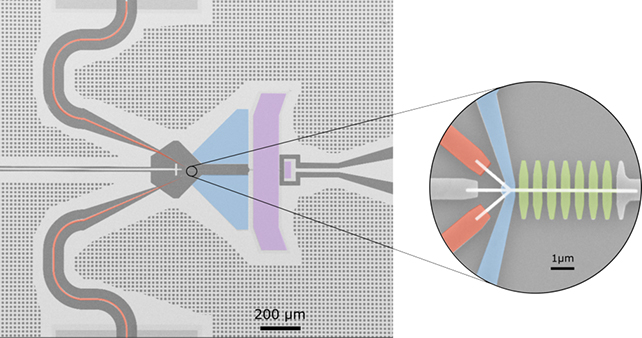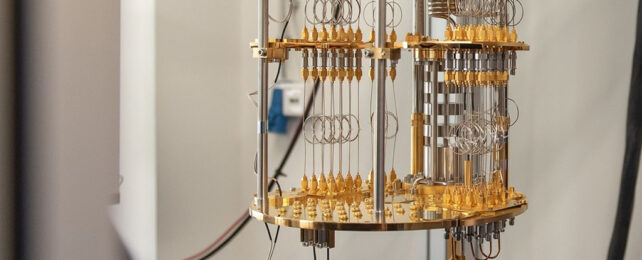A team of researchers has accurately measured power at a scale that's a trillion times smaller than what's possible with standard instruments. It means microwave radiation can be more precisely assessed in quantum physics experiments.
Being able to measure power at ultra-low levels is helpful for scientists building quantum systems – systems that are incredibly small in scale and usually incredibly cold in terms of their temperature. Now we can take those measurements with much greater accuracy.
For example, the new system could be used to better prepare and calibrate qubits – particles at the center of quantum computers that take the place of classic bits – to ensure they're operating as intended and that the readings they produce are correct.
"Commercial power sensors typically measure power at the scale of one milliwatt," says Russell Lake, a senior scientist at the Bluefors quantum technology company in Finland.
"This bolometer does that accurately and reliably at 1 femtowatt or below. That's a trillion times less power than used in typical power calibrations."
In quantum experiments, energy is measured using a special thermometer called a bolometer. It tracks temperature through a small strip of material – usually a metal or semiconductor – that changes its electrical resistance as it absorbs energy.
Researchers added a heater with a known current and voltage in the new system. By knowing precisely how much heat was put in, the scientists detected very tiny energy shifts made by very weak microwaves.

Part of the reason quantum physics is so challenging is that quantum systems are very fragile, and they can be broken or interfered with by the smallest of disturbances, including the tools we use to try to measure them. One of the ways that the new approach can help is by detecting those disturbances.
"For accurate results, the measurement lines used to control qubits should be at very low temperatures, void of any thermal photons and excess radiation," says quantum physicist Mikko Möttönen from Aalto University in Finland.
"Now, with this bolometer, we can actually measure that radiation temperature without interference from the qubit circuitry."
The new setup is known as a nanobolometer, and early tests on weak microwaves passing through a radio frequency transmission line showed that the instrument could precisely record changes in power.
This work builds on previous research into creating a bolometer capable of measuring a qubit's energy state. The approach is scalable and doesn't use much energy while eliminating any potential interference for the qubit.
Bolometers can be used in a wide variety of scenarios, including as part of deep space telescopes, but if they can be practically put to use on qubits, then it means we're another step closer to fully realized quantum computing systems.
"Measuring microwaves happens in wireless communications, radar technology, and many other fields," adds Lake. "They have their ways of performing accurate measurements, but there was no way to do the same when measuring very weak microwave signals for quantum technology."
"The bolometer is an advanced diagnostic instrument that has been missing from the quantum technology toolbox until now."
The research has been published in the Review of Scientific Instruments.
